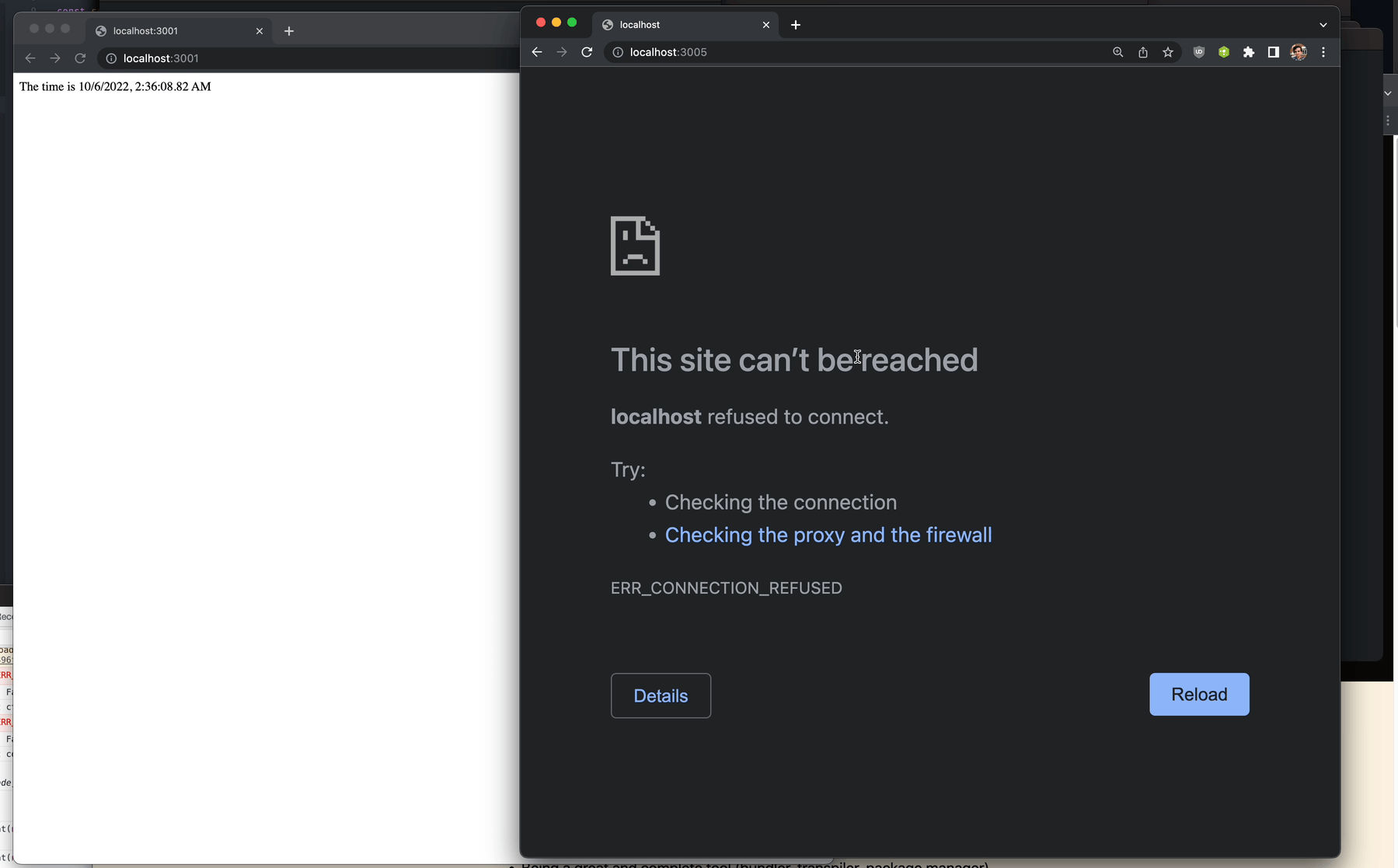diff options
| -rw-r--r-- | README.md | 92 |
1 files changed, 92 insertions, 0 deletions
@@ -1326,6 +1326,98 @@ bun run relay-compiler --schema foo.graphql `bun run` supports lifecycle hooks like `post${task}` and `pre{task}`. If they exist, they will run, matching the behavior of npm clients. If the `pre${task}` fails, the next task will not be run. There is currently no flag to skip these lifecycle tasks if they exist, if you want that file an issue. +### `bun --hot` + +`bun --hot` enables hot reloading of code in Bun's JavaScript runtime. This is a very experimental feature available in Bun v0.2.0. + +Unlike file watchers like `nodemon`, `bun --hot` won't crash your HTTP server. + +left: Bun v0.2.0 +right: Nodemon + + + +To use it with Bun's HTTP server (automatic): + +`server.ts`: + +```ts +// The global object is preserved across code reloads +// You can use it to store state, for now until Bun implements import.meta.hot. +const reloadCount = globalThis.reloadCount || 0; +globalThis.reloadCount = reloadCount + 1; + +export default { + fetch(req: Request) { + return new Response(`Code reloaded ${reloadCount} times`, { + headers: { "content-type": "text/plain" }, + }); + }, +}; +``` + +Then, run: + +```bash +bun --hot server.ts +``` + +You can also use `bun run`: + +```bash +bun run --hot server.ts +``` + +To use it manually: + +```ts +// The global object is preserved across code reloads +// You can use it to store state, for now until Bun implements import.meta.hot. +const reloadCount = globalThis.reloadCount || 0; +globalThis.reloadCount = reloadCount + 1; + +const reloadServer = (globalThis.reloadServer ||= (() => { + let server; + return (handler) => { + if (server) { + // call `server.reload` to reload the server + server.reload(handler); + } else { + server = Bun.serve(handler); + } + return server; + }; +})()); + +const handler = { + fetch(req: Request) { + return new Response(`Code reloaded ${reloadCount} times`, { + headers: { "content-type": "text/plain" }, + }); + }, +}; + +reloadServer(handler); +``` + +In a future version of Bun, support for Vite's `import.meta.hot` is planned to enable better lifecycle management for hot reloading and to align with the ecosystem. + +#### How `bun --hot` works + +`bun --hot` monitors imported files for changes and reloads them. It does not monitor files that are not imported and it does not monitor `node_modules`. + +On reload, it resets the internal `require` cache and ES module registry (`Loader.registry`). + +Then: + +- It runs the garbage collector synchronously (to minimize memory leaks, at the cost of runtime performance) +- Bun re-transpiles all of your code from scratch (including sourcemaps) +- JavaScriptCore (the engine) re-evaluates the code. + +Traditional file watchers restart the entire process which means that HTTP servers and other stateful objects are lost. `bun --hot` does not restart the process, so it preserves _some_ state across reloads to be less intrusive. + +This implementation isn't particularly optimized. It re-transpiles files that haven't changed. It makes no attempt at incremental compilation. It's a starting point. + ### `bun create` `bun create` is a fast way to create a new project from a template. |
